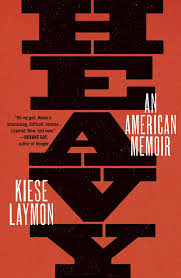Hey everyone! I hope you all are doing well. In this blog post, we’re going to be discussing Tressie McMillian Cottem’s book Thick. Since her book did cover quite a bit we will only be focusing on a few chapters. Enjoy!…
Applying to Grad School? Read This!
Applying to graduate school could be an incredibly taxing process. But fortunately, you have me to walk you through it- your fairy grad mother (I just had to). Okay, so let’s dive right in! Planning is essential to surviving this…
Heavy by Kiese Laymon- A Brief Discussion

I read Heavy: An American Memoir by Kiese Laymon and here are my thoughts (with a couple of spoilers). Trigger alert: This piece contains some mention of eating disorders, abuse, and sexual violence. So before reading Heavy, the memoir by…
Maybe it’s Maybelline
The meaning of democracy lies in American values. From a young age we were taught the romanticized version of American history, which most times started with the Boston Tea Party, moved into the American Revolution, and then the mention of,…
My Long Lost Love
The happiest times of my life were when the only obligation I had was to my books. I remember the excitement I felt walking into a library, a Barnes and Noble bookstore, and my favorite a school book fair. I…
My sanity visibly scattered
I need to protect you. My love for you is unfathomable. From the moment of your conception, a blessing you were. My little cocoa bean, I delight in you. Sometimes you catch me stealing glimpses of you. I want to…
EDIT+ CHAT: Five Ways To Preserve Your Sanity in College
Hi, and thanks for stopping by! For this month’s blog post, I recorded a short editing session while also discussing a few tips for surviving college. I’m thinking of maybe making this into a series but don’t hold me to…
“Nobody’s free until everybody’s free.”
The event hosted by Cathy Davidson and her colleagues Carla Shedd and Tressie McMillan Cottom was truly invigorating. Excellent points were made throughout the program but some of my favorite points were centered around ideas of collectivism and community. I…
The Unknown
Hi everyone! For this first blog post, I wanted to do something a bit different hence the video. In this video, I talked about how daring it can be to step into the unknown and to push past the discomfort.…

